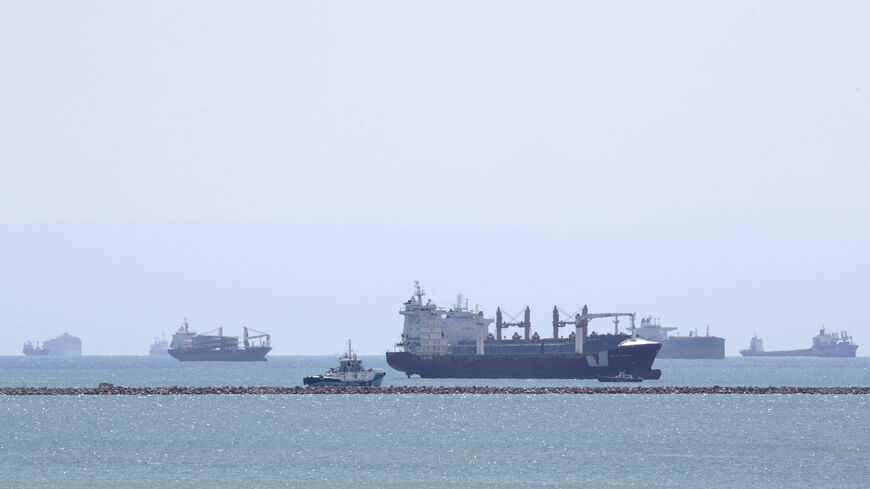ANKARA — During a visit to Ankara, the first in a decade, Egypt's Trade and Industry Minister Ahmed Samir Saleh and his Turkish counterpart Omer Bolat, announced Tuesday that they would seek to increase mutual trade volume between the two countries by 50% in five years.
In a statement after Tuesday's meeting, the Turkish Trade Ministry said that Saleh and Bolat set the goal of increasing the bilateral trade volume as part of a road map they agreed on during their meeting.
“Increasing the mutual trade volume to $15 billion, which currently stands at some $10 billion, in five years has been set as a target,” the statement said.
The trade meeting precedes a potential visit by Egyptian President Abdel Fattah al-Sisi to Turkey, to seal the normalization process between the two countries after a decade of deep freeze. Sisi’s planned July 27 visit to Turkey was postponed as it coincided with the Russia-Africa summit, according to Egyptian media outlets citing Egypt’s Foreign Ministry.
The two ministers also agreed to advance the free trade agreement the two countries signed in 2005 and to hold a second meeting of the High-Level Commercial Consultation Mechanism, whose first meeting was held in 2012 as part of the road map aiming to strengthen the two countries’ economic ties, the statement added.
The Egyptian Trade and Industry Ministry also confirmed the roadmap. “On the first visit of the Egyptian Minister of Trade and Industry to Turkey in 10 years, the Minister of Trade and Industry and his Turkish counterpart agreed on a roadmap to strengthen bilateral economic relations,” a tweet from the ministry’s official account read on Tuesday.
في أول زيارة لوزير التجارة والصناعة المصري لتركيا منذ 10 سنوات
— Ministry of Trade and Industry 🇪🇬 (@Trade_Industry) August 1, 2023
وزير التجارة والصناعة ونظيره التركي يتفقان على خارطة طريق لتعزيز العلاقات الاقتصادية الثنائية
(١/٢) pic.twitter.com/rSCAhjPJ8M
Turkey and Egypt fully restored their diplomatic ties last month by reinstating their ambassadors mutually in their respective capitals after a decade. The level of diplomatic ties between the two countries was downgraded in 2013 after the Egyptian coup that ousted the country’s democratically elected Muslim Brotherhood government. Turkey turned into a safe haven for Brotherhood members under Turkish President Recep Tayyip Erdogan, who was once a vocal supporter of the movement.
Erdogan dialed down his support of the Muslim Brotherhood as part of Ankara’s regional charm offensive aiming to mend ties with Turkey’s former regional foes — namely Egypt, Saudi Arabia, the United Arab Emirates and Israel.
Turkey-Egypt trade ties, meanwhile, largely remained intact despite nosediving political and diplomatic ties between Ankara and Cairo, with mutual trade volume increasing steadily over the past years.








